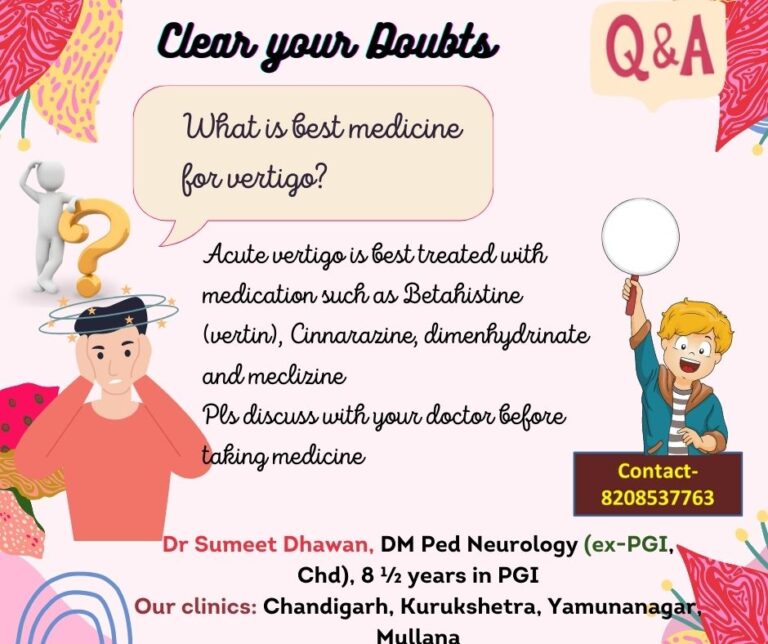Vertigo is a specific symptom characterized by the sensation of spinning or dizziness, where you or your surroundings may appear to be moving or rotating, even when you are stationary. While vertigo itself is a clear indicator of a balance or inner ear issue, there are several associated signs and symptoms that often accompany vertigo. Here are 10 common signs of vertigo:
1. Spinning Sensation:
A false sensation that you or your surroundings are spinning, rotating, tilting, or moving when you’re actually still.
2. Nausea and Vomiting:
Vertigo can cause nausea and, in some cases, vomiting due to the disorienting feeling of motion.

3. Dizziness:
A general sense of unsteadiness or lightheadedness often accompanies vertigo.
4. Loss of Balance:
Vertigo can lead to balance problems, making it difficult to stand or walk without support.

5. Medications:
Certain medications, especially those that affect the inner ear or the central nervous system, can cause dizziness and vertigo as side effects.
5. Difficulty Concentrating:
The spinning sensation can be distracting and make it challenging to focus on tasks.
6. Nystagmus:
Involuntary rhythmic eye movements, usually characterized by the eyes moving rapidly back and forth or up and down.
7. Tinnitus:
Ringing or buzzing in the ears can be associated with certain forms of vertigo.
8. Hearing Loss:
Some types of vertigo, like Meniere’s disease, may cause fluctuating hearing loss.
9. Sweating:
Profuse sweating can occur during vertigo episodes, particularly when they’re severe.
10. Headache:
Vertigo can trigger headaches, which are often described as a “head fullness.”
If you experience sudden or recurrent episodes of vertigo or notice any of these signs, it’s essential to seek medical evaluation to determine the underlying cause. Vertigo can have various origins, and identifying the specific cause is crucial for proper diagnosis and treatment. A healthcare professional, such as an ear, nose, and throat specialist or a neurologist, can conduct an evaluation to determine the cause and recommend an appropriate treatment plan.
Read our other blogs on
Read our other blogs on vertigo
Vertigo, dizziness, and chakkar- Are you frustrated?
Vertigo, chakkar and dizziness- Is it same or different?
What is relation of sleep and vertigo
what test need to be done to diagnose vertigo
Is vertigo caused by depression?
Can high blood pressure cause vertigo?
Vertigo Maneuvers for treatment: Epley, Semont, Foster, and Brandt-Daroff
Home Remedies and Integrative Treatments for Vertigo
Can lack of water cause vertigo?
Can vertigo be caused by neck problems?
What are the 10 signs of vertigo?
What are the 10 signs of vertigo?